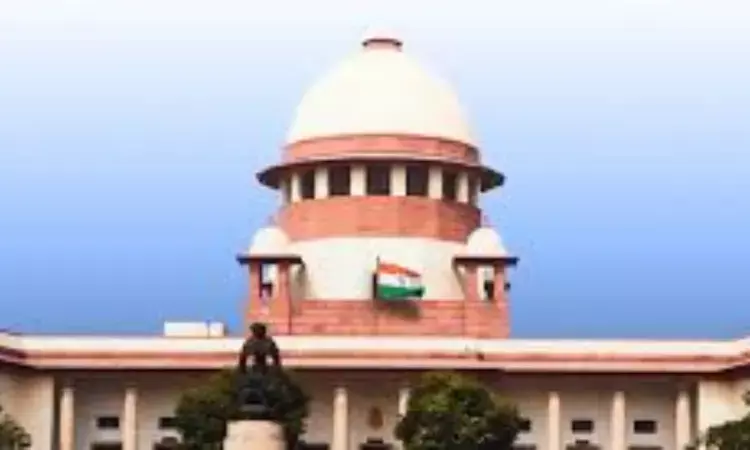- Home
- Medical news & Guidelines
- Anesthesiology
- Cardiology and CTVS
- Critical Care
- Dentistry
- Dermatology
- Diabetes and Endocrinology
- ENT
- Gastroenterology
- Medicine
- Nephrology
- Neurology
- Obstretics-Gynaecology
- Oncology
- Ophthalmology
- Orthopaedics
- Pediatrics-Neonatology
- Psychiatry
- Pulmonology
- Radiology
- Surgery
- Urology
- Laboratory Medicine
- Diet
- Nursing
- Paramedical
- Physiotherapy
- Health news
- Fact Check
- Bone Health Fact Check
- Brain Health Fact Check
- Cancer Related Fact Check
- Child Care Fact Check
- Dental and oral health fact check
- Diabetes and metabolic health fact check
- Diet and Nutrition Fact Check
- Eye and ENT Care Fact Check
- Fitness fact check
- Gut health fact check
- Heart health fact check
- Kidney health fact check
- Medical education fact check
- Men's health fact check
- Respiratory fact check
- Skin and hair care fact check
- Vaccine and Immunization fact check
- Women's health fact check
- AYUSH
- State News
- Andaman and Nicobar Islands
- Andhra Pradesh
- Arunachal Pradesh
- Assam
- Bihar
- Chandigarh
- Chattisgarh
- Dadra and Nagar Haveli
- Daman and Diu
- Delhi
- Goa
- Gujarat
- Haryana
- Himachal Pradesh
- Jammu & Kashmir
- Jharkhand
- Karnataka
- Kerala
- Ladakh
- Lakshadweep
- Madhya Pradesh
- Maharashtra
- Manipur
- Meghalaya
- Mizoram
- Nagaland
- Odisha
- Puducherry
- Punjab
- Rajasthan
- Sikkim
- Tamil Nadu
- Telangana
- Tripura
- Uttar Pradesh
- Uttrakhand
- West Bengal
- Medical Education
- Industry
Supreme Court to Decide on Linguistic Minority Quota in MBBS Admissions

Supreme Court of India
New Delhi: The issue of medical admissions for the children of defence personnel and central government employees, especially those seeking admissions under linguistic minority quotas, will now be decided by the Supreme Court, which agreed to examine the matter recently.
Acknowledging that many defence families faced obstacles when applying for state-specific reservations, a Supreme Court bench of Justices P S Narasimha and Atul S Chandurkar observed that it was essential to lay down clear legal principles regarding the eligibility of linguistic minority candidates affected by mandatory relocations due to government service.
Questions regarding this came up before the top court bench after a case was filed by a National Eligibility-Entrance Test Undergraduate (NEET-UG) 2025 candidate, whose mother tongue was Tamil and whose father was a bona fide domicile of Karnataka.
The father of the candidate, who was a retired surgeon of the Indian Navy, served the nation for 25 years, and during this period, his family had to to relocate frequently due to the transferable nature of armed forces service.
Accordingly, the petitioner/candidate completed her schooling from Classes 1 to 10 outside of Karnataka, and thereafter, studied Classes 11 and 12 within the State of Karnataka.
When she applied for State counselling under the Tamil Linguistic Minority quota, the Karnataka Examination Authority (KEA) rejected her application, relying on Clause 13 of the E-information Bulletin 2025. According to this clause, candidates seeking linguistic minority reservation are required to have completed 10 years of continuous study in Karnataka, from Class 1 to the qualifying examination.
Challenging the decision of KEA, the petitioner approached the Supreme Court bench and argued that the 10-year continuous study requirement was arbitrary, illegal, and unconstitutional, particularly when applied to the Children of defence personnel.
Further, the candidate argued that since the residence of such students entirely depends on their parents' postings in national service, they have no control over their place of schooling.
As per the latest media report by Deccan Herald, it was also submitted by the petitioner that linguistic identity is inherited and it is not determined by the location of schooling. "Therefore, denying minority reservation solely due to compulsory relocations violated constitutional guarantees of equality and minority protection, and resulted in unfair discrimination against children of ex-servicemen."
The petition also challenged the order dated July 17, 2025, issued by the Karnataka High Court. Agreeing to consider the matter, the Apex Court bench decided to take it up for a detailed hearing on January 13, 2026.
M.A in English Barsha completed her Master's in English from the University of Burdwan, West Bengal in 2018. Having a knack for Journalism she joined Medical Dialogues back in 2020. She mainly covers news about medico legal cases, NMC/DCI updates, medical education issues including the latest updates about medical and dental colleges in India. She can be contacted at editorial@medicaldialogues.in.


